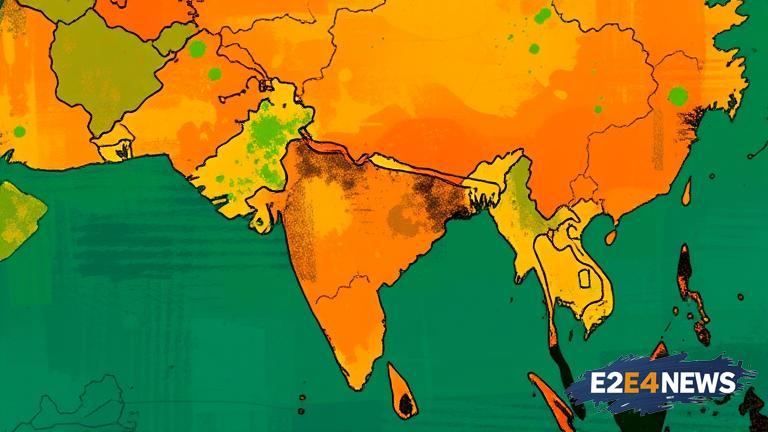South India, comprising states such as Tamil Nadu, Kerala, Karnataka, and Andhra Pradesh, has witnessed a significant surge in narcotic activities in recent years. The region’s strategic location, with a long coastline and proximity to international borders, has made it an attractive route for drug traffickers. The rise of cartels and organized crime groups has further exacerbated the problem, with these groups exploiting the region’s vulnerabilities to smuggle and distribute illicit drugs. The narcotics trade in South India is believed to be worth billions of dollars, with drugs such as heroin, cocaine, and methamphetamine being widely available. The region’s major cities, including Chennai, Bangalore, and Hyderabad, have become key hubs for the trade, with drugs being sold openly in some areas. The involvement of local politicians and law enforcement officials in the trade has also been alleged, raising concerns about corruption and complicity. The Indian government has launched several initiatives to combat the narcotics trade, including the establishment of a national narcotics control bureau and the implementation of stricter laws and regulations. However, the problem persists, with new routes and methods being used by traffickers to evade detection. The use of coastal routes, particularly in Tamil Nadu and Kerala, has become a major concern, with drugs being smuggled into the country via fishing boats and other small vessels. The lack of effective surveillance and monitoring systems has made it difficult for authorities to track and intercept these shipments. The rise of e-commerce and online platforms has also facilitated the trade, with drugs being sold and distributed through these channels. The health and social implications of the narcotics trade in South India are significant, with many young people becoming addicted to drugs and suffering from related health problems. The trade has also led to an increase in crime and violence, with rival gangs and cartels fighting for control of the market. The Indian government has recognized the need for a comprehensive and multi-faceted approach to address the problem, including education and awareness campaigns, rehabilitation programs, and stricter law enforcement. The international community has also been urged to cooperate and share intelligence to combat the global narcotics trade. The United Nations Office on Drugs and Crime (UNODC) has warned that the narcotics trade is a major threat to global security and stability, and that concerted efforts are needed to address the problem. The Indian government has also sought to strengthen its cooperation with neighboring countries, including Sri Lanka and Bangladesh, to combat the trade. The use of technology, including artificial intelligence and data analytics, is also being explored to track and disrupt the narcotics trade. The Indian government has launched several initiatives to promote awareness and education about the dangers of drug abuse, including the establishment of a national drug abuse prevention program. The program aims to educate young people about the risks of drug abuse and to provide support and counseling to those affected. The Indian government has also recognized the need for a more nuanced and balanced approach to addressing the narcotics trade, including the provision of rehabilitation and treatment services for those affected. The trade has also highlighted the need for greater international cooperation and coordination to address the global narcotics trade. The Indian government has urged the international community to work together to share intelligence, best practices, and resources to combat the trade. The rise of the narcotics trade in South India has significant implications for the region’s economy, security, and social stability. The trade has also highlighted the need for greater awareness and education about the dangers of drug abuse, as well as the need for more effective law enforcement and rehabilitation strategies.
